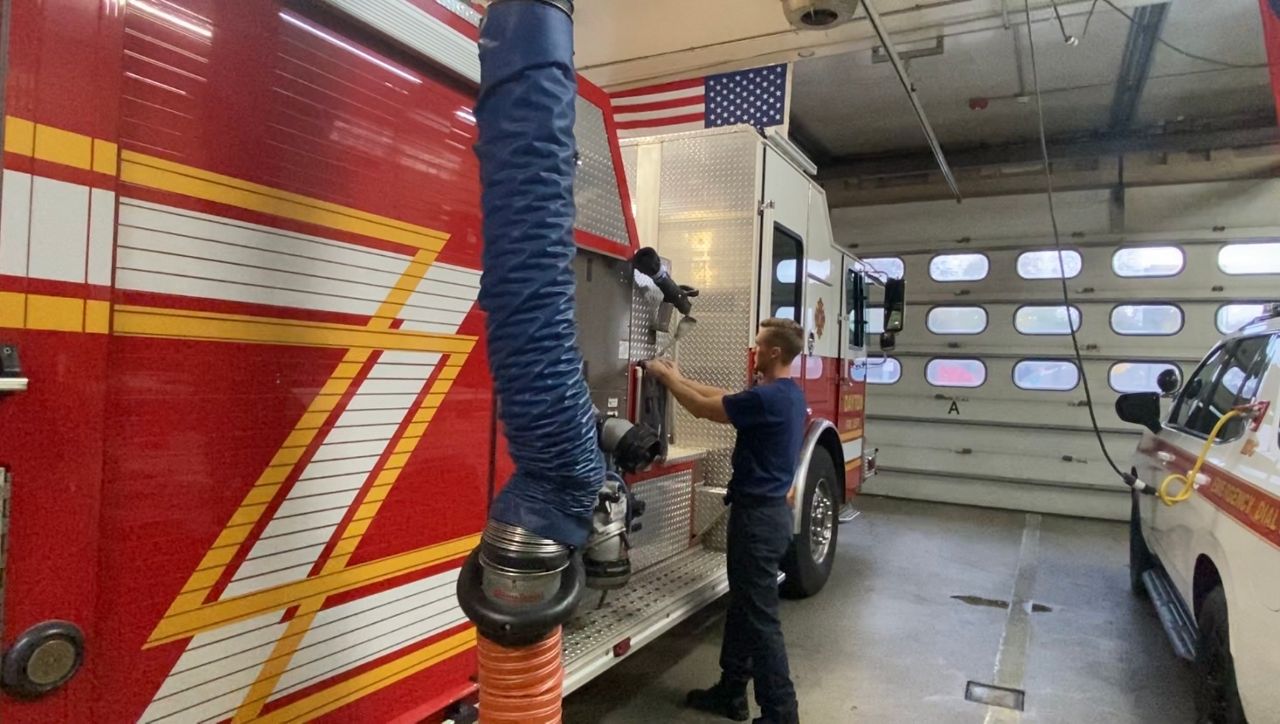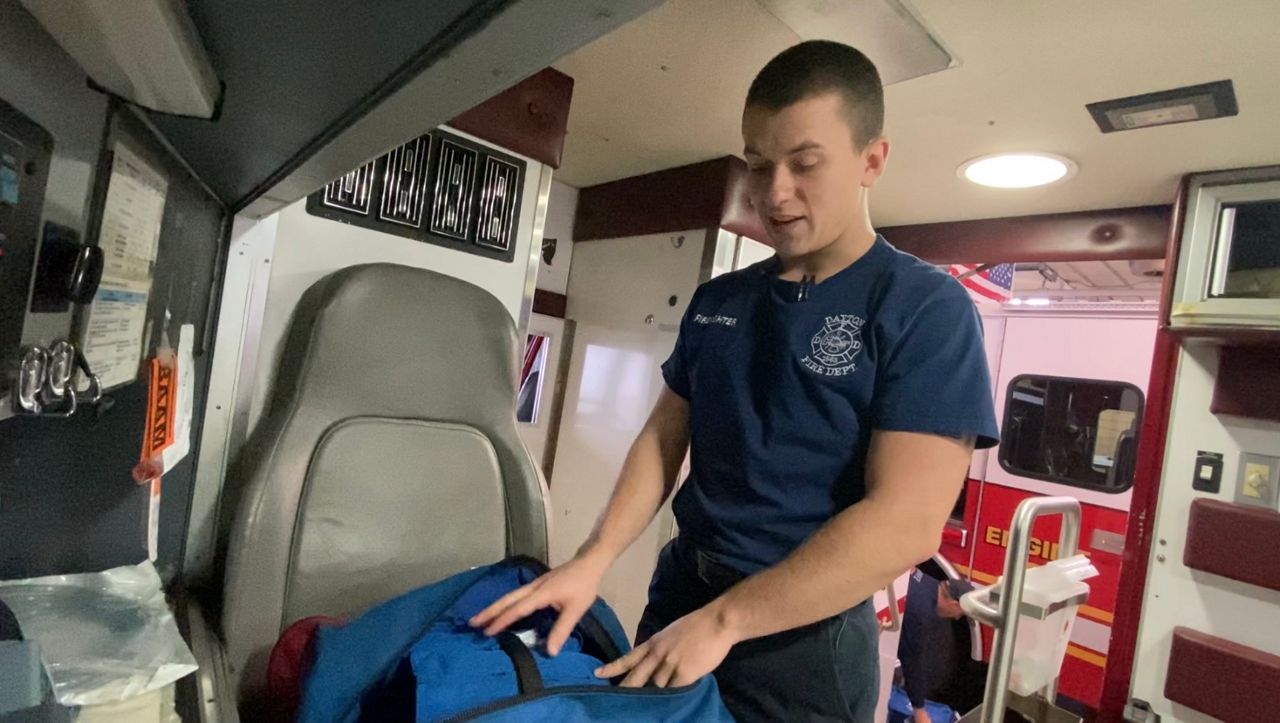DAYTON, Ohio — Two months into his career as a Dayton firefighter, Jesse Dean already knows he’s where he wants to be. He finished the fire academy with pride. He’s building a sense of camaraderie at his new station. The only problem is his commute.
What You Need To Know
- The HELPER Act aims to make housing more affordable for teachers and first responders
- Most of the Dayton fire department lives outside the city
- Shorter commutes improve public safety and encourage community engagement
- First responders hope the bill could improve recruitment and retention
After his 48-hour shift, Dean drives nearly an hour home to Cincinnati. “I’ve already traded in my car for a more fuel-efficient vehicle,” Dean said.
While his commute is especially long, it’s not out of the ordinary among Dayton firefighters. Noah Joines, who graduated from the fire academy alongside Dean, said he only recently moved to Tipp City to reduce his extra long commute.
“That’s the worst part. I used to live up in Sydney and I used to drive a 45-minute drive home,” Joines said. “I do know of some [firefighters] who live in the city of Dayton, but I don’t know too many.”

Dayton dropped its residency requirement for firefighters and other city employees in 2009, around the same time the city’s population was in rapid decline. Now that the trend is slowing and even reversing in some neighborhoods, firefighters like Joines said there’s still something holding them back from buying property in the city.
“You have to be willing to pay a higher price and that’s a lot harder for someone who’s not making the biggest salary in the world,” Joines said.
With the fire department reporting its busiest year for service calls on record, Joines and his fellow firefighters are working harder than ever.
Rising costs, low staffing
The problem is not unique to Dayton. In the wake of the pandemic, workforces across Ohio have been stretched thin, particularly among first responders and teachers.
The Ohio Education Association reported 17,000 fewer employees at Ohio Schools going into the 2022-2023 school year as opposed to 2019-2020.
Meanwhile, the Paramedic Foundation is reporting EMS staffing shortages across Ohio are nearing a critical level. The survey shows about 60% of former EMS workers cite low wages as a barrier to continued employment.
The cost of living has been on the rise, with Redfin reporting home prices in the state are up more than 7% over last year.
In response, lawmakers hope a bipartisan bill can tackle both issues at once.
The Homes for Every Local Protector, Educator and Responder, or HELPER Act, was introduced to congress last spring. Designed after the GI Bill, its goal is to make it easier for teachers and first responders to buy homes in the cities where they work, by eliminating down payment requirements and offering 100% financing for onetime home purchases.
“A bill like this is completely applicable to my situation,” Dean said. “It’d be a great chance to kind of help out those who serve this community come and be more of a part of the community on a day-to-day basis.”

Living where you serve
A shorter commute for first responders is far from the only benefit firefighters said this bill would provide.
“You get to know your community a little better,” Joines said. “Some of the best firemen in the world live in their city and what makes them the greatest firemen is not that they’re big and strong and athletic, it’s the fact that they know fire and they know their buildings.”
In large-scale emergencies, a short commute means off-duty firefighters can assist on short notice, without relying too heavily on mutual aid, from neighboring communities.
“You want to cover your own city,” Joines said. “That’s part of it. You want to take care of where you work.”
Dean agrees that living in the city would make him a better Dayton firefighter, but he said there’s also a lot to consider about what’s best for him and his wife.
“We’re in a position where within the next few years we’ll be looking for a place to settle down, you know, and raise a family,” Dean said. “We have looked into moving into Dayton, we have looked into staying closer to where we’re at, and that’s a decision we’ll be looking to make within the next couple of years.”
Ultimately, he said legislation like the HELPER Act could serve as a strong recruitment and retention tool, helping firefighters like him stay on for years to come, attracting others to the career, and helping young families make a living.
“I think it would help my family and I think it would help my coworkers in the long run,” Dean said.
Future of the HELPER Act
The act has bipartisan support among 84 co-sponsors in the House and 14 in the Senate, including five from the Ohio delegation, though the bill is still waiting for action in the House Committee on Financial Services.
In September, a group of Ohio mayors voiced their support for the bill, including Jeffrey Mims from Dayton, Steve Patterson from Athens, and Jack Bradley of Lorain.
Groups like the Dayton fire department hope with more attention, the bill may move forward after Election Day, helping not just their staff, but their city and fellow first responders across the country.
“It feels like something that’s being done to try and bring people like me that really want to live here and work here and keep them for a long time,” Dean said.









